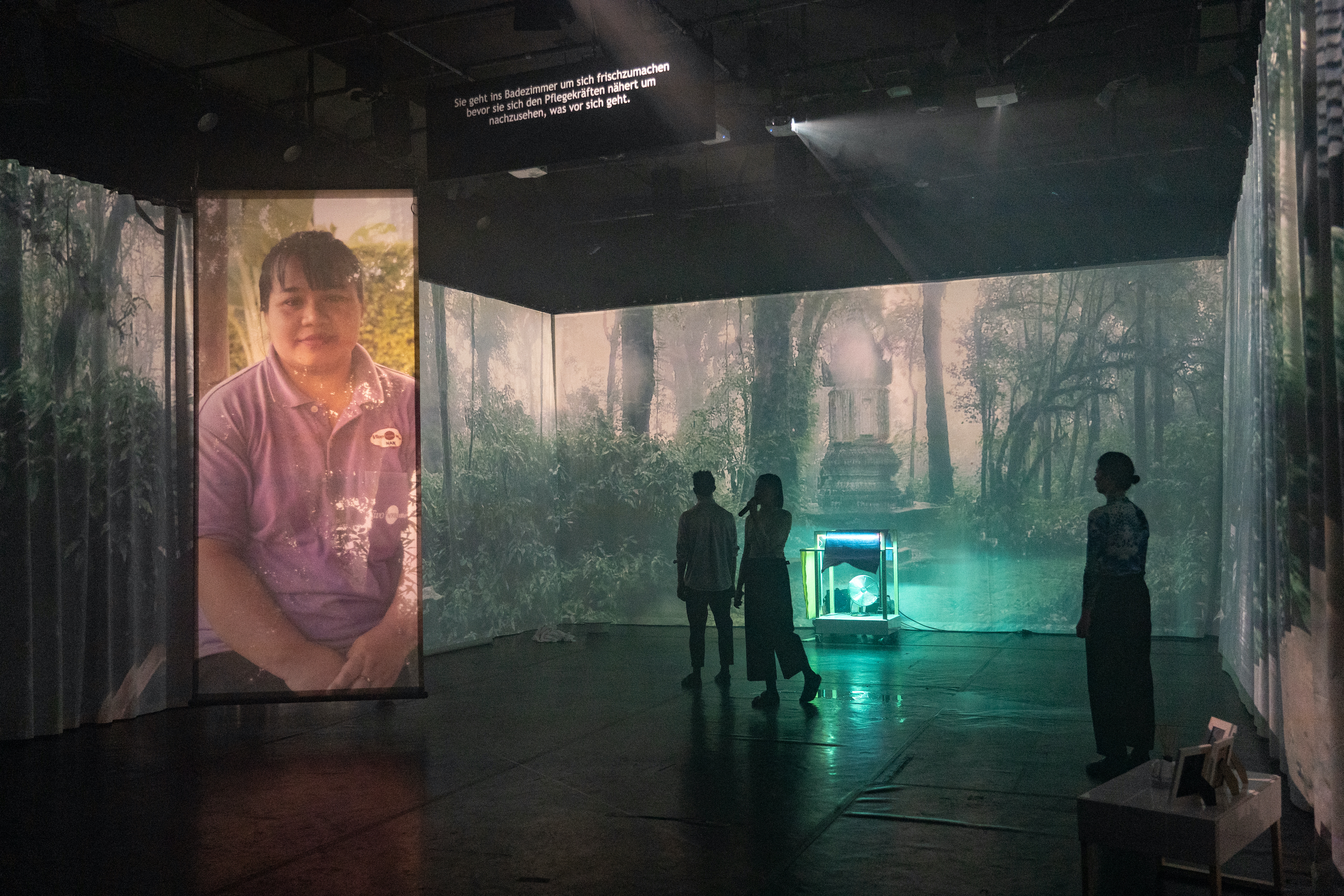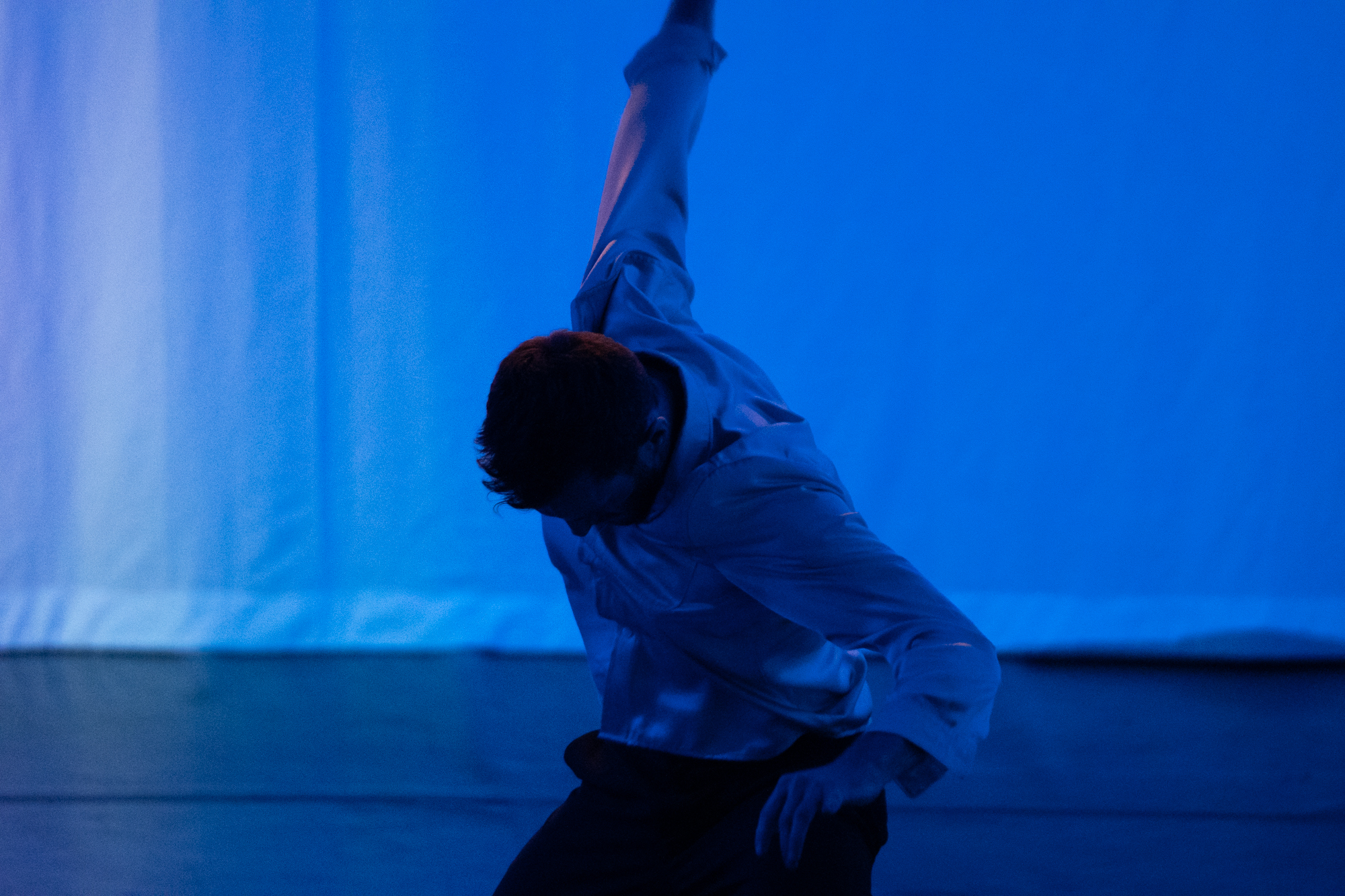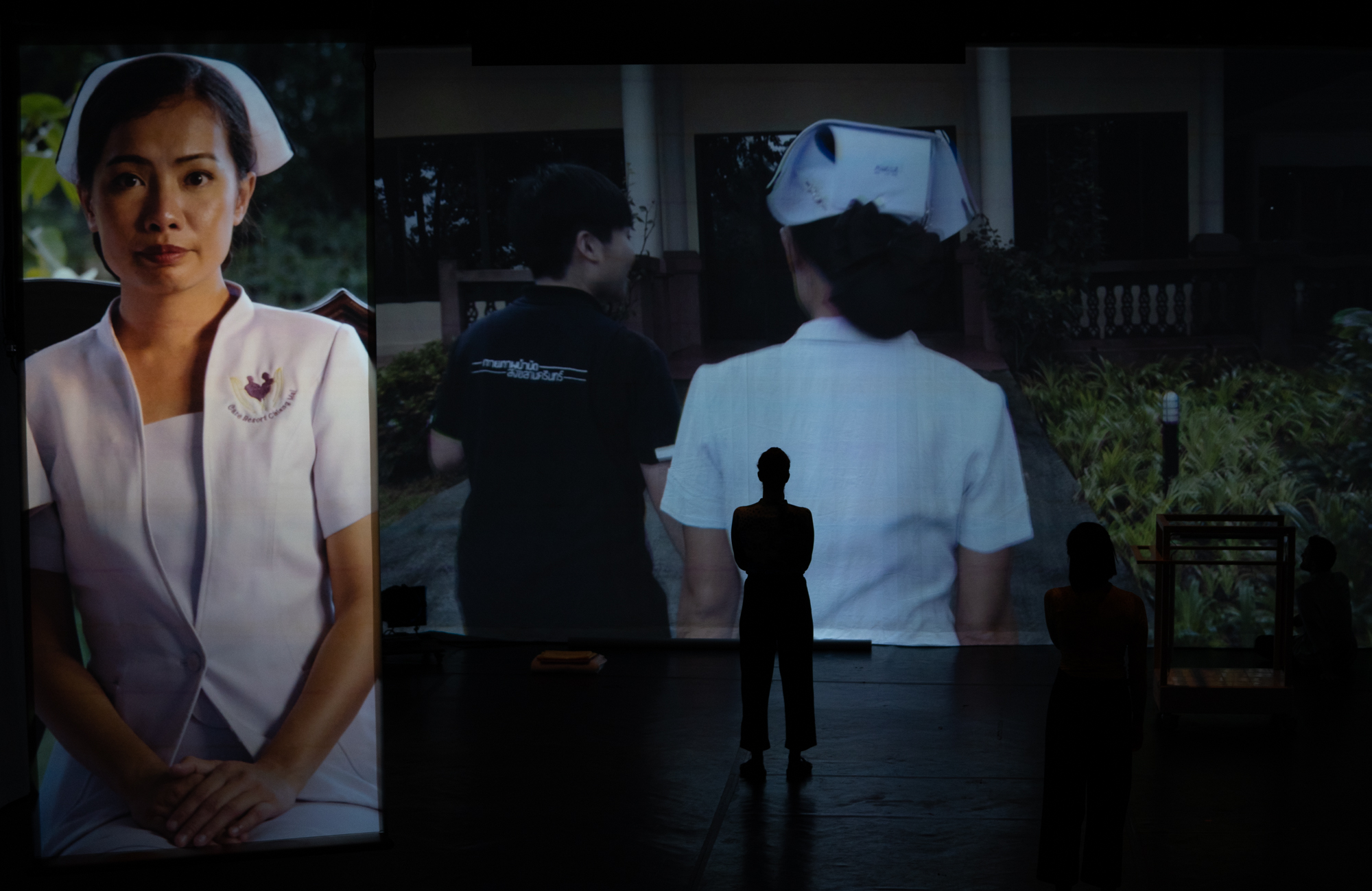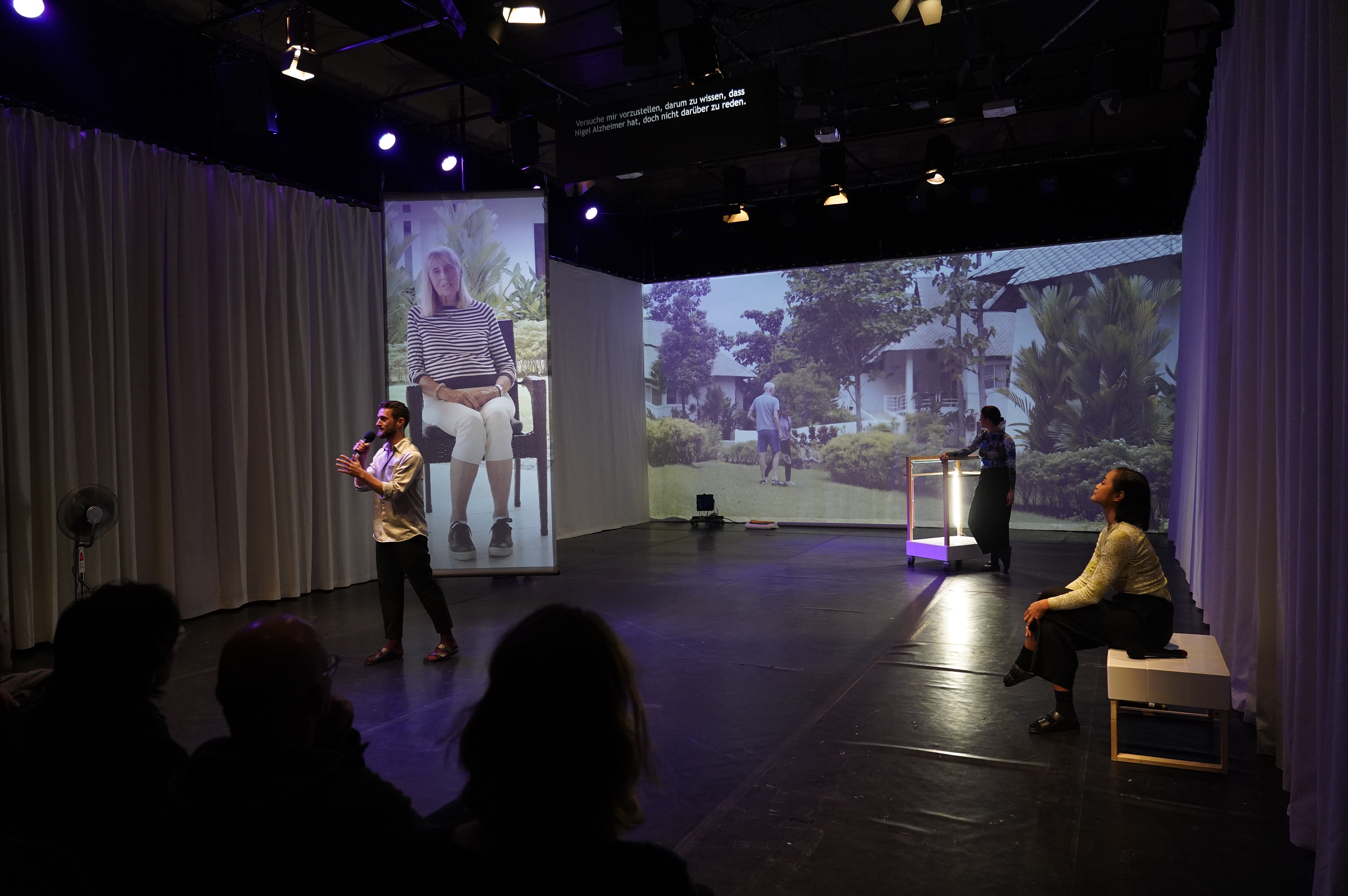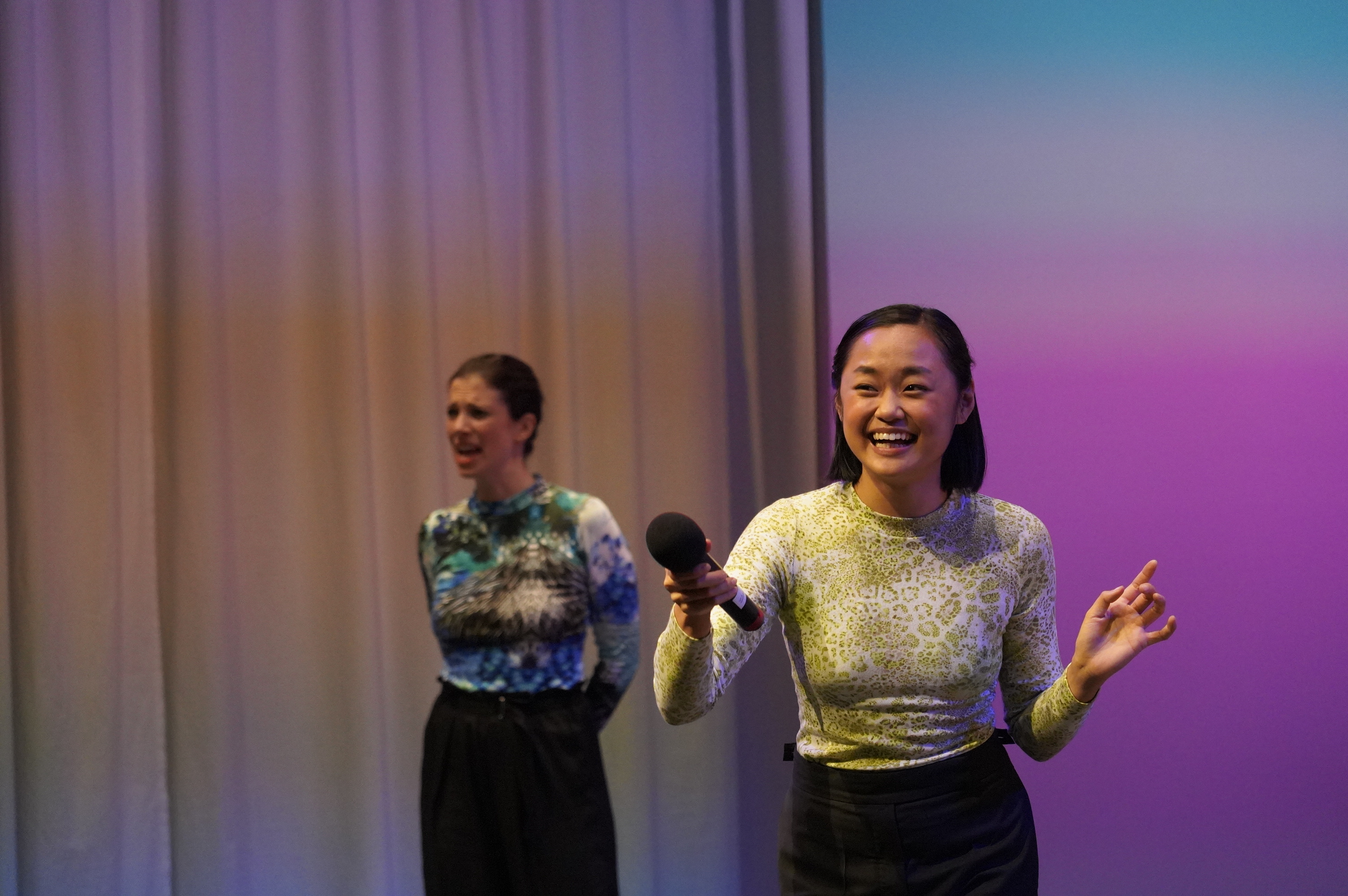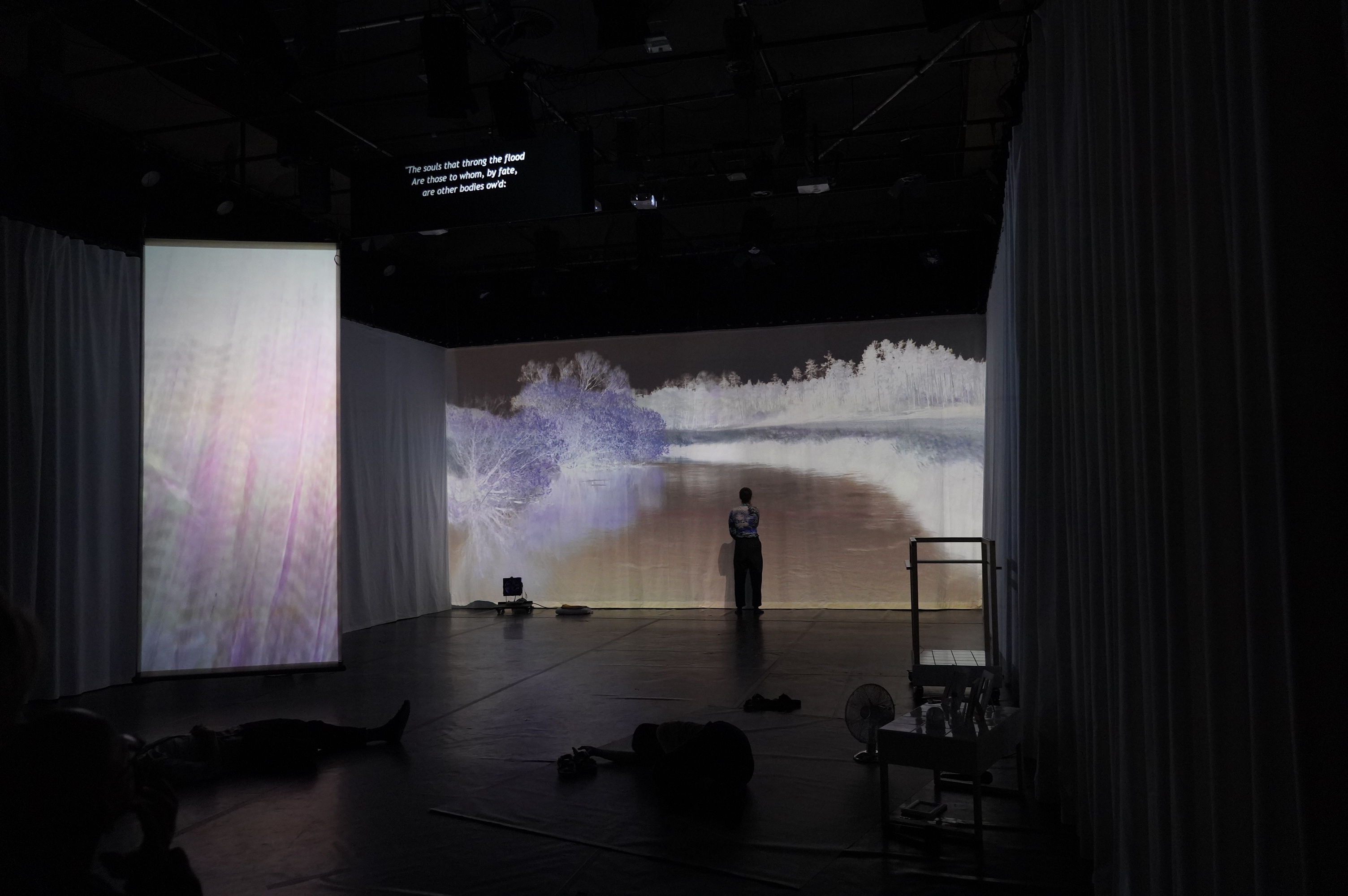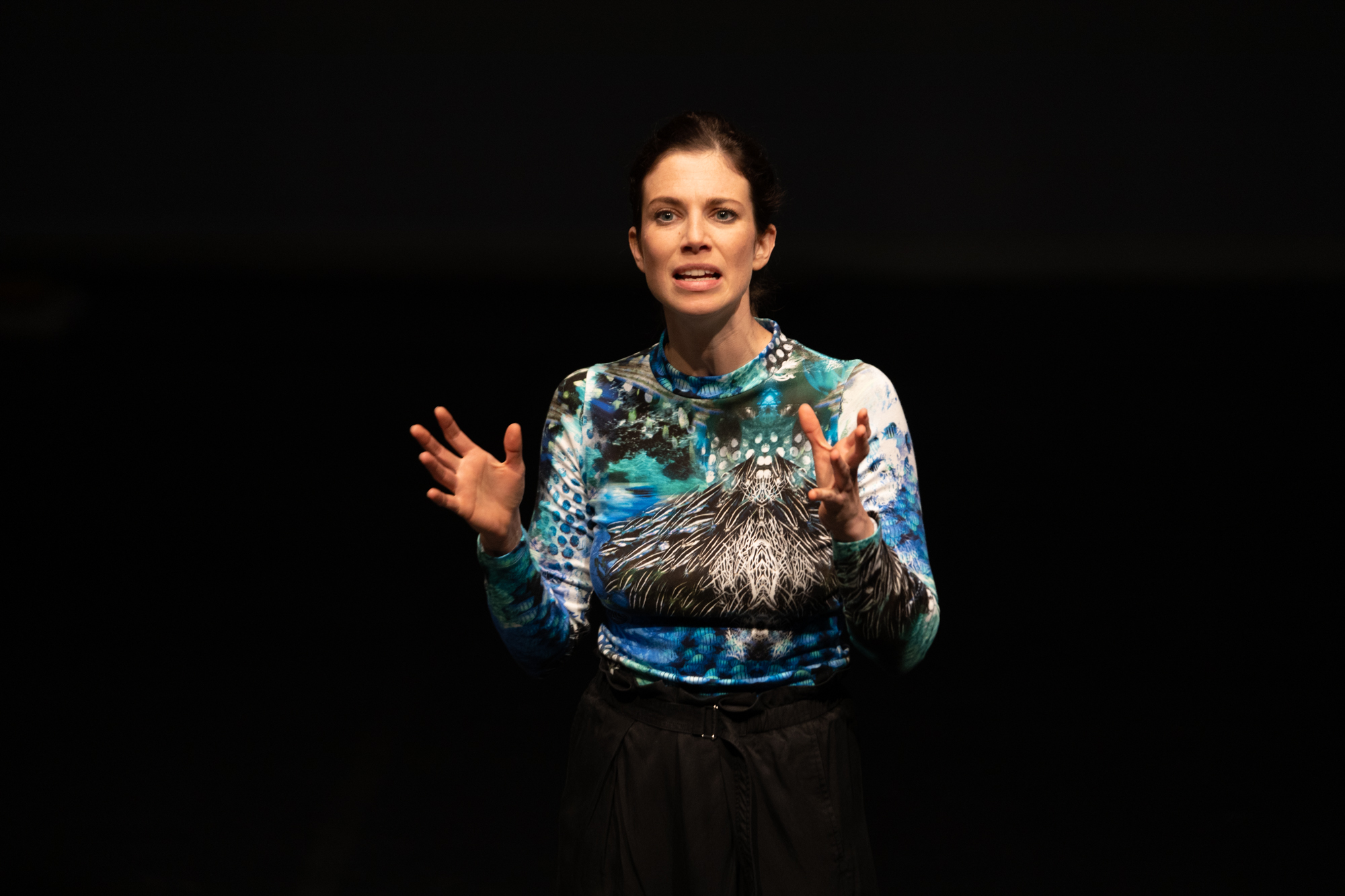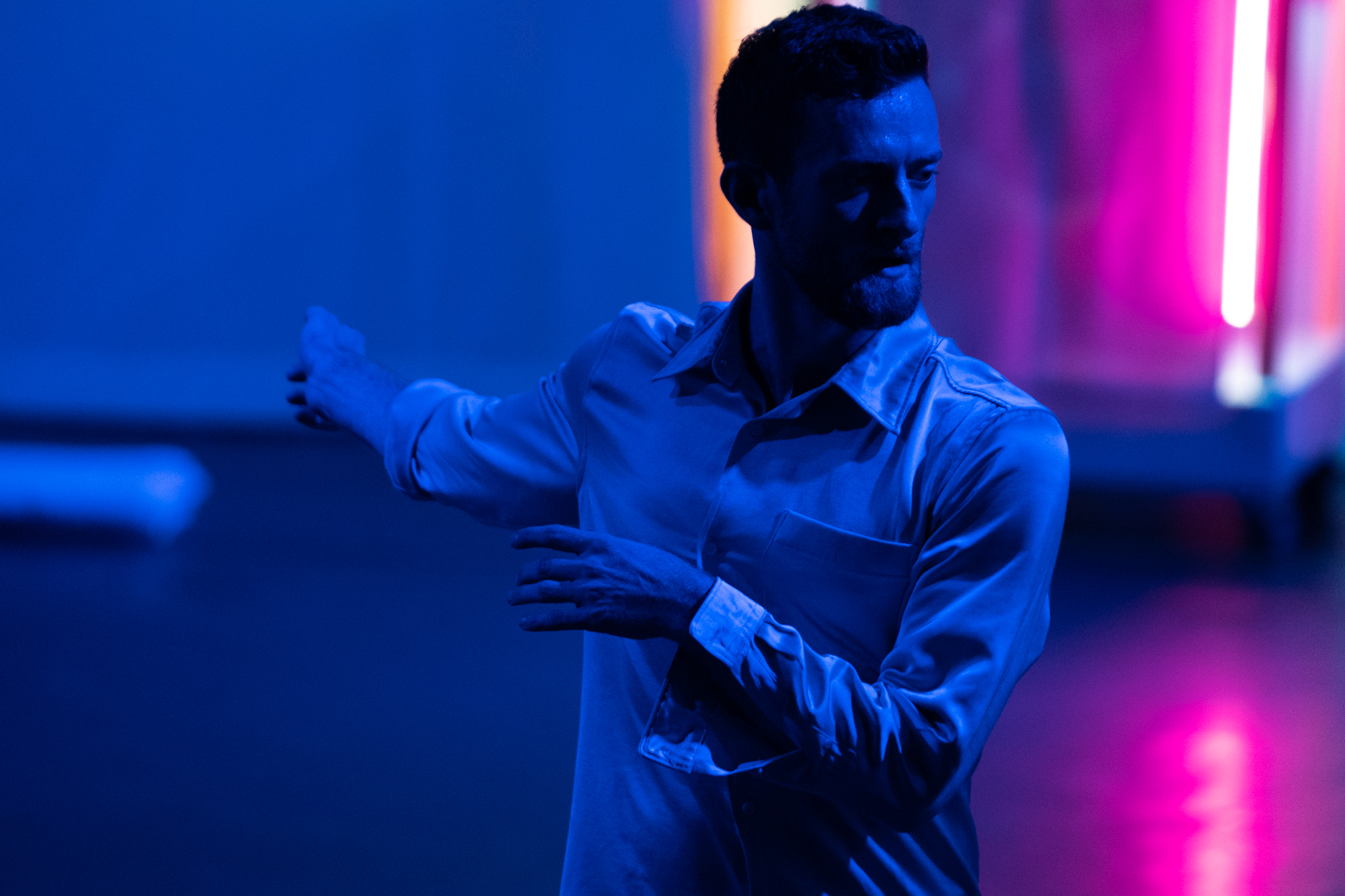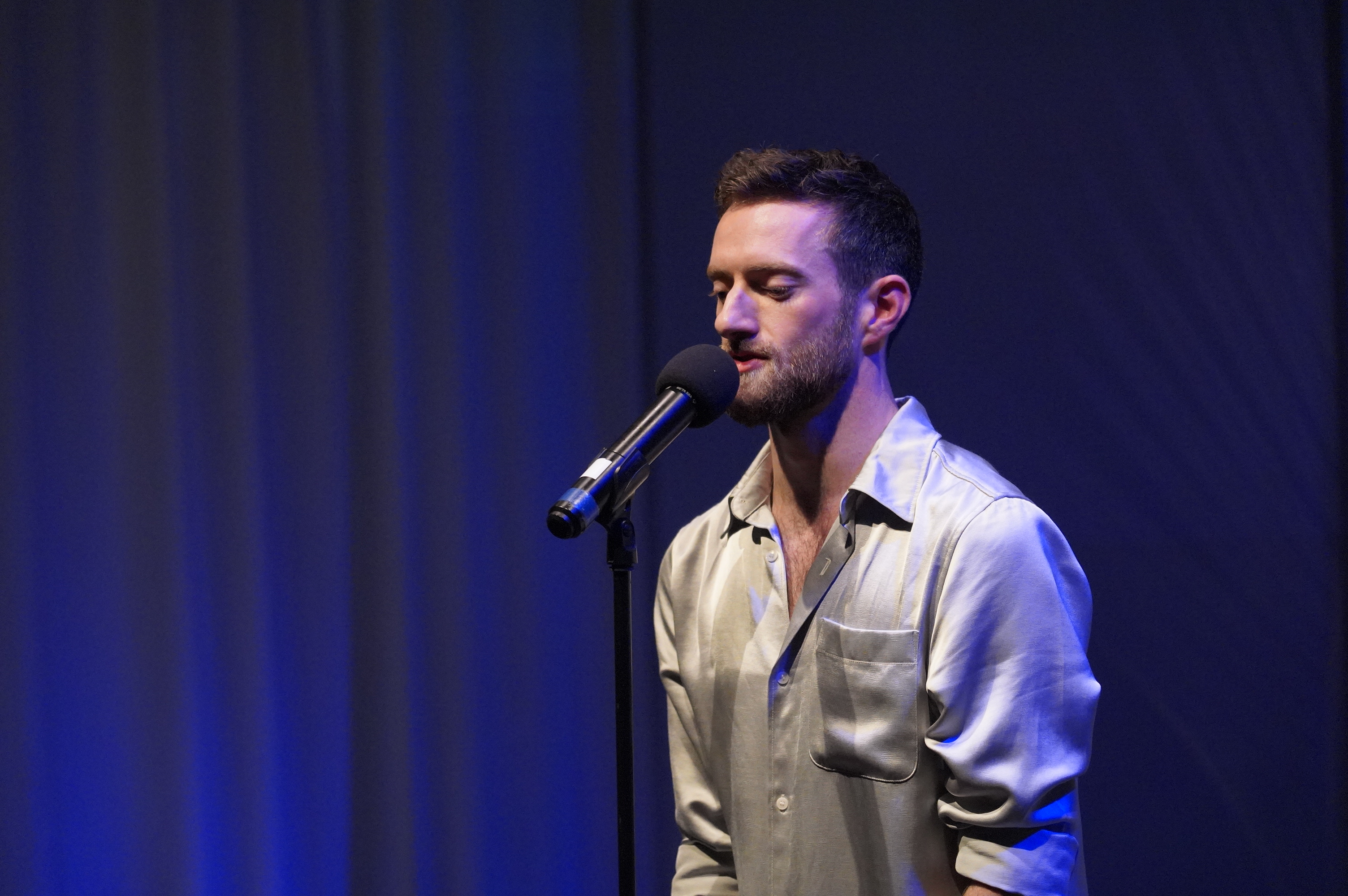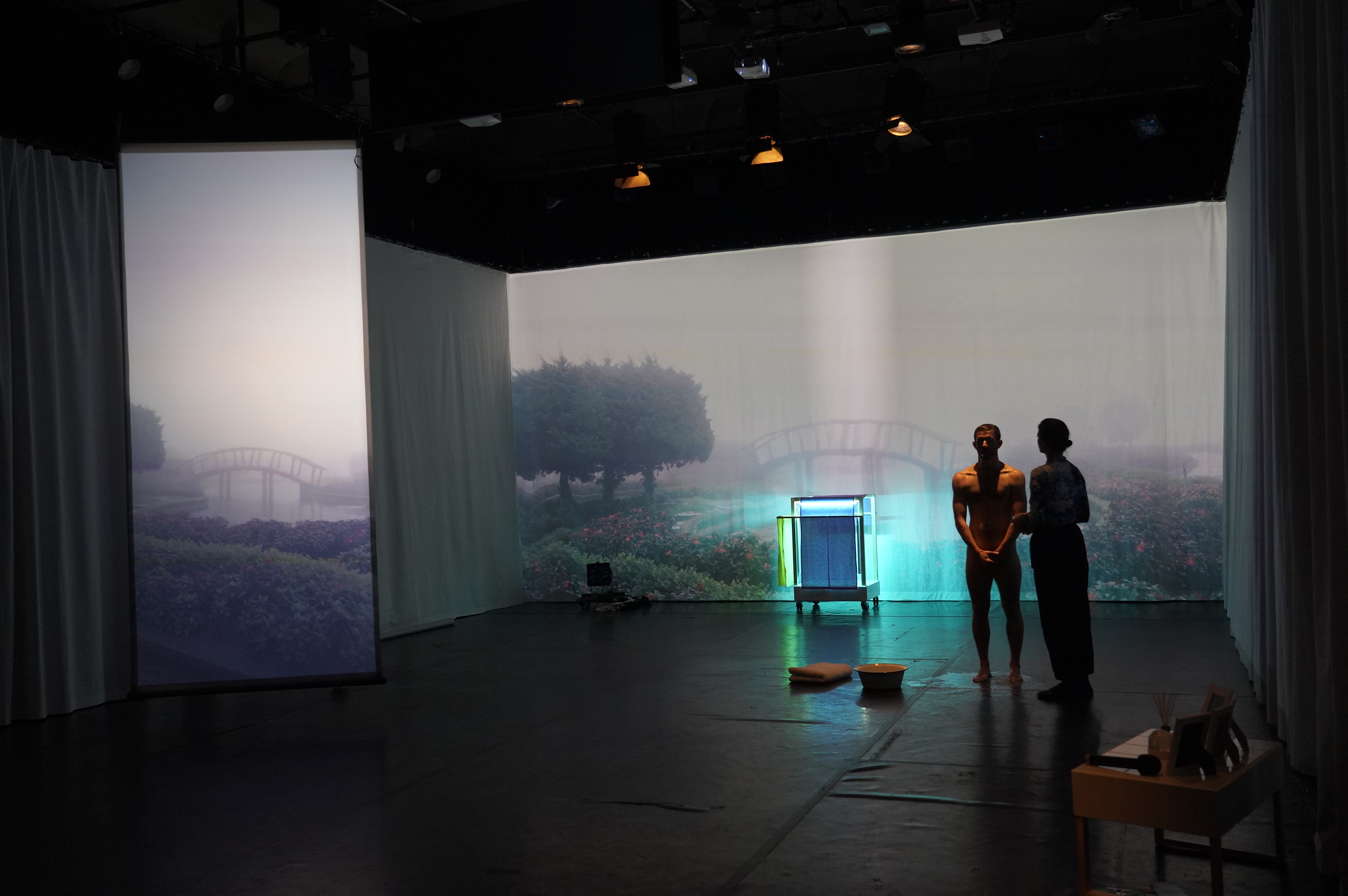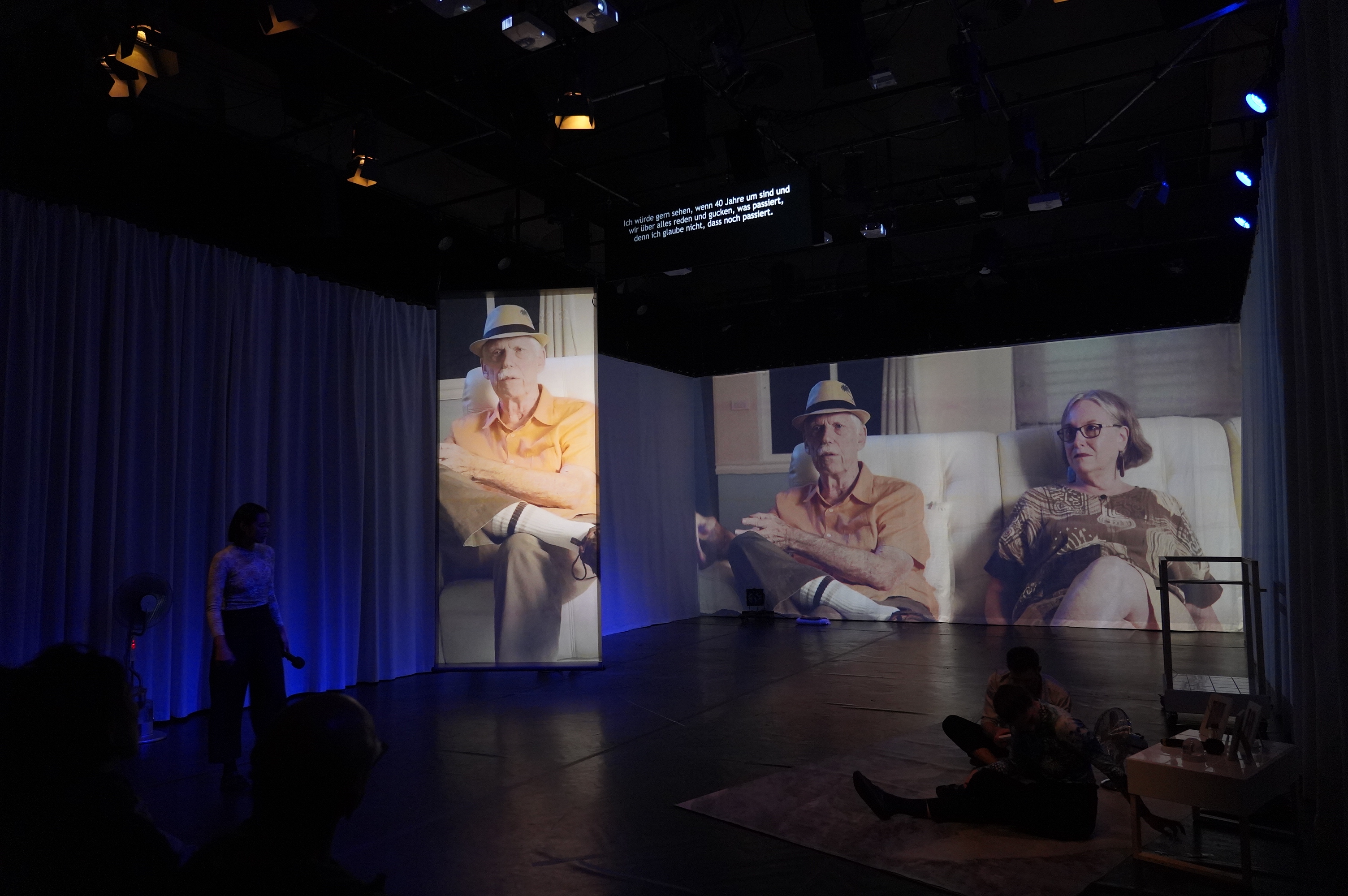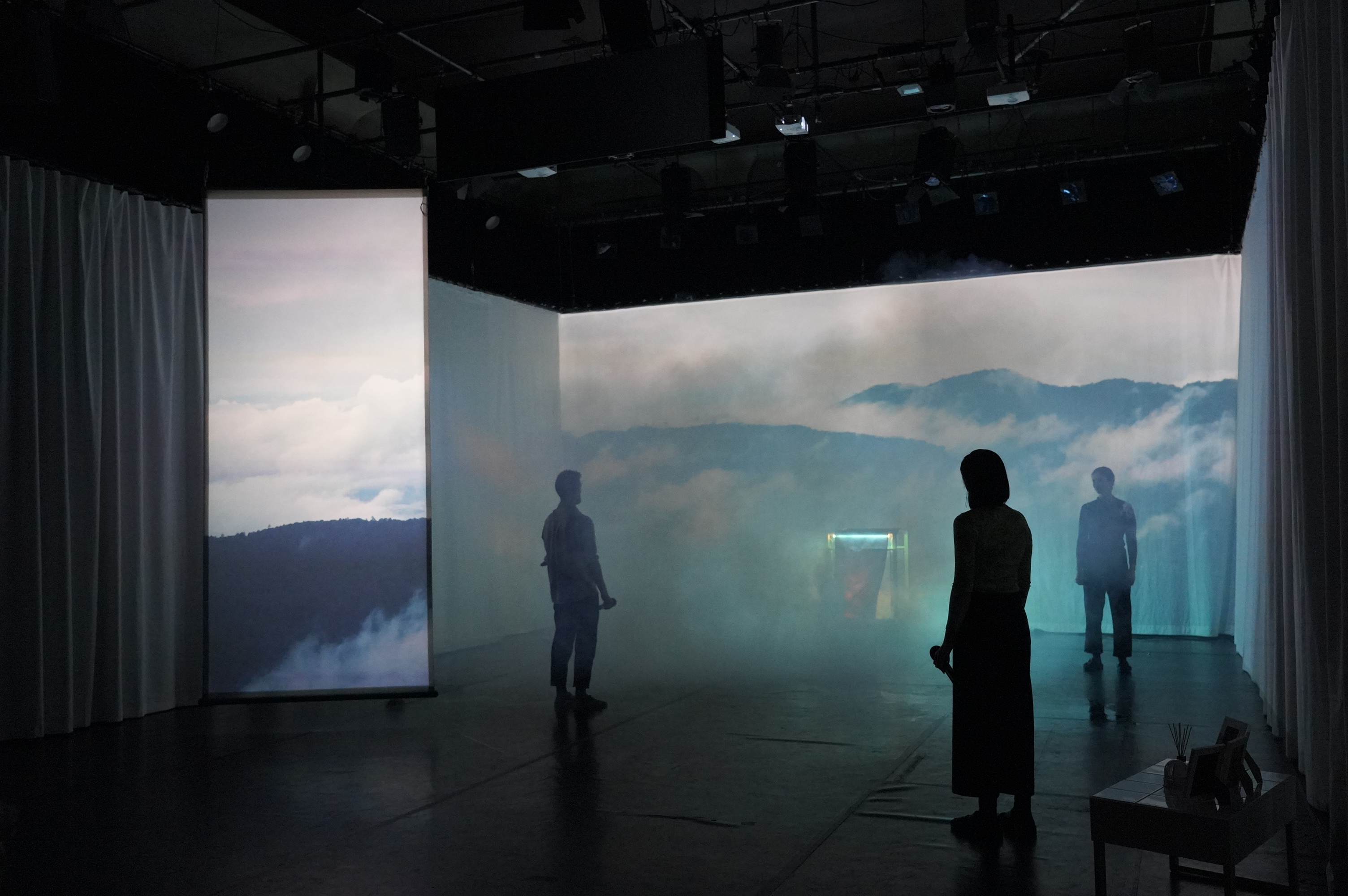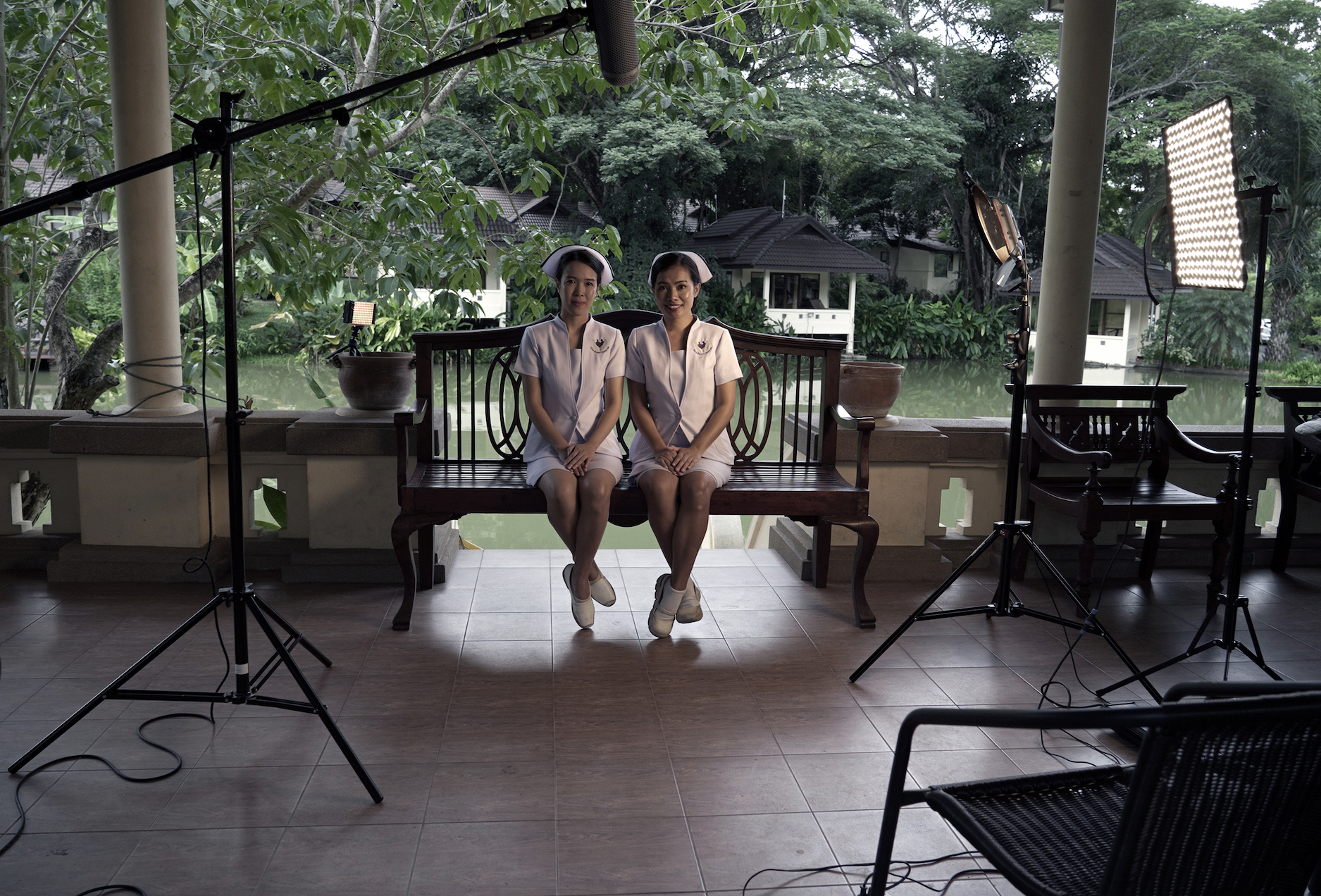
November 2019 & May 2020
BETWEEN WORLDS
Global Tales of Outsourcing Dementia Care
Ballhaus Ost, Berlin
& Northern Stage, Newcastle Upon Tyne (UK)
& Nachtkritik.de
A co-production of Costa Compagnie with University of British Columbia (Department of Geography) and Newcastle University. In cooperation with Ballhaus Ost.
“In its multidimensional nature, “Between Worlds” creates a complex situation between intimacy and globality.”
P. Haaf reader’s review at www.nachtkritik.de
“But the pain is there and the piece always brings it to the surface. It forces us to look and listen. (…) So the invisible are given visibility again. (…) But that was not all: The emotional consternation from individual fates turns into a critique of the system that exposes dominant capitalist and patriarchal logics.”
T. Dagge at www.aufderbuehne.de full reviews below
In their cinematic performance, Costa Compagnie explores the outsourcing of dementia care from Germany, Switzerland, North America and the United Kingdom to Northern Thailand. For this purpose, the artists together with scientists from the University of British Columbia, Vancouver and Newcastle University spent three weeks researching within care facilities in Chiang Mai.
Three performers from Thailand, England and Germany now move through atmospherically dense film footage and weave the threads of the research into a multi-layered essayistic stage narrative that captures the perspectives of care-takers and care-givers, management and relatives. In the dim light of the tropical and humid mountain forest and in the shadowless light of the hospital rooms, stories of caring and loss unfold, of daily new beginnings and of what remains when forgetfulness gains the upper hand.
In German, English and Thai with German surtitles.
Online stream and panel discussion at www.nachtkritik.de
28 – 29 May 2020
Facebook Watch Party and Panel Discussion
Start streaming together at 8pm on Thursday 28th
Panel discussion through Facebook Live starts at 10pm after the stream
Questions and comments through Facebook
–
Access the video of the show through:
Online for 24 hours from 6pm – 6pm
–
Premiere and Shows at Ballhaus Ost, Berlin
Thursday, 07. and Friday 08. November 2019 at 8 pm
Sat, 09. November at 5 pm
Ballhaus Ost, Pappelallee 15, 10437 Berlin, 030 44 049 250, info@ballhausost.de, (U) Eberswalderstr.
Virtual-Reality-Installation
Before and after the performances, a VR-installation enables an immersive visit to the Thai research sites.
Discussion
On Saturday, the 09.11.2019 at 2.30 pm before the performance a discussion will take place with the social scientists involved in the research Prof. Geraldine Pratt and Dr. Caleb Johnston, as well as with experts from local care facilities.
Talk Backs
Audience Talk-Backs with the audience will take place after the performances on Friday and Saturday.
Shows at Northern Stage, Newcastle (UK): 13 – 15 November 2019
TEAM
Performance, Text Irene Laochaisri, David Pallant, Anna Rot Writer & Director, Research Felix Meyer-Christian Academic Research & Collaboration Caleb Johnston, Geraldine Pratt Camera Philine von Dueszeln Stage Design, Costume Anne Horny Music, Sound Marcus Thomas Editor Stéphanie Morin VR-Video, Color-correction Eric Birnbaum Video-mapping Erik Kundt Dramaturgy, Text Zahava Rodrigo Translation Thailand Konkanok Phohom Production Management Franziska Merlo Assistant Director Lotte Sagert Assistant Art Dept. Teresa Haeussler
Credit Photos: Philine von Düszeln
Supported by the General Project Funding of the German Federal Cultural Foundation
Also funded by UK Economic and Social Research Council and Social Sciences and Humanities Research Council of Canada.

MAKING PLANS FOR NIGEL
By Theresa Dagge
Published on 11 Nov. 2019 at www.aufderbuehne.de
This is a piece about fading away. And letting go. About becoming invisible. The new piece of the Costa Compagnie with the (unfortunately somewhat bulky) title ‘Between Worlds – Global Tales of Outsourcing Dementia Care’, which premiered last Thursday in Berlin at Ballhaus Ost, interweaves documentary film with performative and essayistic narrative elements to form a dense narrative about the personal fate of dementia patients and their relatives. But that is not all. The emotional consternation caused by individual fates turns into a critique of the system, which exposes dominant capitalist and patriarchal logics.
But first of all – the beginning:
A Swiss manager establishes a care facility for people living with dementia in the North of Thailand. He has a case of Alzheimer’s in the family himself. The “Care Resort” has an outdoor pool, the access roads are well-kept, the lawns are trimmed and lined with palm trees. Affected people from Europe and North America are brought to “Vivo Bene” by their relatives in order to receive what the health systems of the Global North cannot provide: a good life with an all-round care, adequate care. The families of people with dementia should also be relieved – financially and from the physical and psychological strain that the nursing work entails. Is that morally acceptable? From a manager’s perspective: a win-win situation. For those affected. For the health systems of the West. And for Thailand. After all, the wages of the nurses are 20% above the Thai average. Everyone wins.
For Kate Davis, however, who has housed her husband Nigel in “Vivo Bene” due to the unreasonable care conditions in Great Britain, it is a profound loss experience. At first, Nigel couldn’t remember the right turn-off to the beach. He later gave up his passion for watching films because he had forgotten its beginning in the middle of a story. Now he plays badminton with his nurses in white linen trousers. An unreal scene, almost absurd. There is this old XTC song: “We are only making plans for Nigel / We only want what’s best for him / We are only making plans for Nigel / Nigel just needs a helping hand / And if young Nigel says he’s happy / He must be happy / He must be happy / He must be happy in this world.”
Kate looks into the camera and tells of the annihilation of her husband, who can no longer remember who she is when she says goodbye to him and flies back to England. The performers of the play, Irene Laochaisri, David Pallant and Anna Rot, enter into dialogue with the documentary material, ask uncomfortable questions, try to make the perspectives of the interviewees “imaginable”. And they talk about their personal dealings with the clinical picture of dementia. Anna confesses that she found it incredibly funny when her grandmother offered her a “Kifu” because she could not find the words for coffee. Or how upset this very grandmother was when Anna asked her, “Are you confused?” It’s such an honest moment. How do you deal with the fact that there’s something “wrong” with the person across the room?
In the remaining societies, in which self-optimization has become a fetish and “functioning” substitutes religious patterns of order, the loss of mental orientation – the loss of control – drives people into social isolation. Our capitalist economic system, especially in its neo-liberal form, forces people to function by the unequal distribution of financial, social and political resources. But what is life in dignity worth to us? Nursing professions are underpaid and receive little recognition. Incidentally, the gender issue is also structurally immanent to this system. Because “care work” – i.e. unpaid care activities, housework and childcare – is done for the most part by women. It is also a question of global justice, because in order for the population of Western societies to “function” and “optimize”, they employ people from the global South for these activities – at impossible financial conditions.
In the remaining societies, in which self-optimization has become a fetish and “functioning” substitutes religious patterns of order, the loss of mental orientation – the loss of control – drives people into social isolation. Our capitalist economic system, especially in its neo-liberal form, forces people to function by the unequal distribution of financial, social and political resources. But what is life in dignity worth to us? Nursing professions are underpaid and receive little recognition. Incidentally, the gender issue is also structurally immanent to this system. Because “care work” – i.e. unpaid care activities, housework and childcare – is done for the most part by women. It is also a question of global justice, because in order for the population of Western societies to “function” and “optimize”, they employ people from the global South for these activities – at impossible financial conditions.
Or the sick people are being relocated. To Thailand, for example. The French sociologist and philosopher Michel Foucault coined the term “heterotopia” in the 1960s to describe the form of outsourcing: these are non-places on the fringes of society to which people who deviate from the norm can be segregated in order to stabilize and continue to guarantee the existence of “normal” society. Examples are prisons, psychiatric clinics and old people’s and nursing homes.
One dementia patient in “Between Worlds” tells that he is an “unloved grandfather” who is no longer needed by his family and has therefore been deported. He is happy to be at “Vivo Bene” now, because he is needed there. It is these moments of clarity in the patients that make one realize how one automatically denies the patients their humanity. Because, according to the misconception, where there is no consciousness, there is no pain. But the pain is there and the play brings it again and again to the surface. It forces us to look and listen. For example, Jack, who thinks his wife Trudy is the greatest, constantly praising her strength and wisdom, and who becomes the audience’s favorite. He provokes hearty laughter, which sometimes gets stuck in your throat as soon as you realize that he can’t make any coherent statements except about Trudy. The piece shows these video scenes in full length. We are supposed to listen to Jack, even if it becomes unpleasant. This is how the invisible are given visibility again. At least for a brief moment at the Ballhaus Ost.
“Between Worlds” wants a lot. And the occasional overload with all the themes and contexts can be a side effect of the 120 minutes long piece. This is forgivable, because it is more important to not face the complexity of the problem ignorantly. There is no getting around a questioning of the system in this piece.
Published on 10 Nov. 2019 at www.nachtkritik.de
Suddenly Nigel no longer knew whether he had to turn right or left on the way to the beach, says Kate.
In their cinematic performance “Between Worlds – Global Tales of Outsourcing Dementia Care”, which premiered last Thursday at Ballhaus Ost in Berlin, the Costa Compagnie is focused on forgetting and disappearing, and the question of how a society can respond to the care crisis its own aging. The starting point is the migration of people in need of care from Europe and North America to Thailand.
A large picture of a beach opens the piece. Three performers stroll across the stage and sing a light-footed jazz song. It could be a beach like the one where Kate and Nigel, whom we get to know in the course of the performance, spent so many hours together. A place that is concrete and imaginary at the same time. The projection onto the white curtains that limits the stage space on three sides, encloses it and makes it an intimate space between the hospital room and the white cube, describes a spatial ambiguity that we encounter again and again in the course of the play.
For their performance the Costa Compagnie lived and filmed in care facilities for people with dementia in Northern Thailand. These facilities are difficult to distinguish from holiday resorts with their azure-blue tiled swimming pools, ornamental palms and shady pavilions. They are beautiful places and you find yourself comparing them with the clichéd pictures of local nursing homes, the associations of old age and illness.
“Between Worlds” approaches its subject via protagonists who initially appear oversized on a vertical screen in the stage space. Here speak the people living with dementia, relatives, carers and managers who recognize a business model in the rapid aging of western societies. The performers address them, imagine their emotional states and have a say in their texts. The speaker positions change so frequently that the people on stage do not claim any authority or commentator function. The artistic director of the Costa Compagnie Felix Meyer-Christian named the agency of the performers in the follow-up discussion as speaking “nearby” the protagonists.
The closeness to the protagonists is also expressed in a humorous handling of the subject. This is done, among others, by a reflective thematization of stage moments. Not only through the performers, who speak to the audience, tell stories and invite you to karaoke for a kind of Thai version of Call Me Maybe: We also hear from the nurse Nan how she sings to the patients and thus turns the nursing home into her stage. We see two nurses re-enacting a situation with a lonely person and we see how the restaurant in the Swiss resort Vivo Bene is turning into the setting for a kind of Swiss folk festival. This urge for transformation and imagination seems to be inherent in the care resorts of “Between Worlds”.
And so it is only logical to approach the topic in the theater, through a joy of playing and a penchant for excited openness, instead of the closed and linear narration of the numerous reports on dementia villages in Southeast Asia. The complicated global economic entanglements, patriarchal structures of the care sector and acts of violence by the military dictatorship of Thailand are also addressed, despite all the ease. They flicker like lucid moments in the tropical care idyll. In its multidimensional nature, “Between Worlds” creates a complex situation between intimacy and globality.

